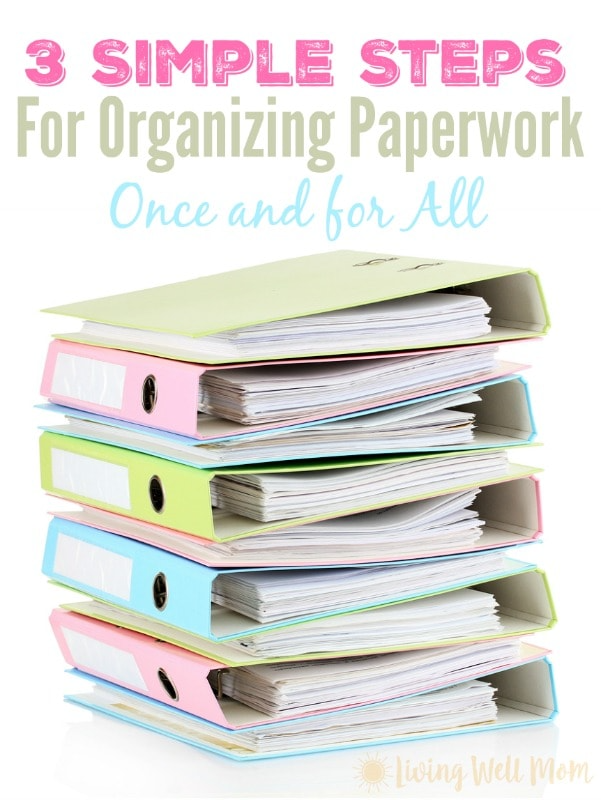7 Tips to Become a Paperwork Pro Quickly

Are you overwhelmed by the stacks of paperwork that seem to multiply no matter how hard you try to manage them? Welcome to the club! Whether you're running a small business, organizing your home, or managing personal documents, efficient paperwork handling is key to reducing stress and saving time. This post will guide you through seven proven tips to help you become a paperwork pro in no time.
Tip 1: Digitize Your Documents


In today’s digital age, converting paper documents into electronic formats is not just a trend; it’s a necessity. Here’s how to go about it:
- Choose the right scanning equipment: High-quality scanners with features like duplex scanning can save you hours of work.
- Organize files logically: Create folders on your computer or cloud storage systems like Google Drive or Dropbox that reflect your physical filing system for easy navigation.
- Utilize OCR technology: Optical Character Recognition (OCR) allows you to convert scanned images into editable text, making searches easier.
✏️ Note: Remember to back up your digital documents regularly to prevent data loss.
Tip 2: Implement a Filing System


Even with digitalization, a well-thought-out physical filing system can significantly reduce clutter:
- Color coding: Use different colored folders or labels for different categories or departments.
- Alphabetical or chronological order: Depending on the type of documents, this can make retrieval much simpler.
- Create an index: An index or a master list helps keep track of where each document should be.
Tip 3: Set Regular Maintenance Days

Paperwork doesn’t manage itself; here’s how to tackle it routinely:
- Weekly reviews: Set a day each week to go through your papers and decide what needs to be kept or discarded.
- Archiving vs. shredding: Know when to archive important documents and when to securely dispose of sensitive information.
📅 Note: Set reminders for regular document purges to prevent buildup.
Tip 4: Learn to Say No to Unnecessary Paper

Reducing the inflow of paper can be as crucial as managing what you already have:
- Go paperless where possible: Opt for e-statements from banks, utilities, and other service providers.
- Request less junk mail: Many services allow you to opt-out of marketing materials.
- Digital signatures: Use electronic signatures for contracts and forms to save paper and time.
Tip 5: Use Technology to Streamline Processes


The right tools can make paperwork management almost automatic:
- Document management software: Tools like Evernote, Microsoft OneNote, or more specialized software like DocuWare can help organize and secure your documents.
- Automate what you can: Set up automatic filing, reminders, and backups where possible.
Tip 6: Educate Your Team

If you’re managing documents in a team setting, the following steps can ensure everyone is on the same page:
- Training sessions: Conduct sessions on document handling, filing systems, and data security.
- Clear procedures: Document and distribute SOPs (Standard Operating Procedures) for paperwork management.
| Name | Role | Training Required |
| John Doe | Accounts Manager | Basic, Advanced |
| Jane Smith | HR Coordinator | HR Specific |

Tip 7: Review and Revise Regularly

Paperwork systems should evolve with your needs:
- Conduct quarterly reviews: Assess your filing system’s effectiveness, update it, and discard outdated documents.
- Stay updated: Keep abreast of new digital tools and regulations that can impact how you manage documents.
To sum up, mastering paperwork management involves a blend of digital solutions, physical organization, routine maintenance, and continuous learning. By implementing these seven tips, you'll not only reduce the volume of paper but also gain control over the documentation, ensuring you're always ready for audits, tax seasons, or any document-related demands. Remember, the journey to becoming a paperwork pro is ongoing, requiring regular attention and adaptation to new circumstances or technologies.
What if I’m not tech-savvy, can I still manage paperwork effectively?

+
Yes, even if you’re not very tech-savvy, you can still implement many of these tips. Start with simple steps like organizing physical files and gradually introduce more technology as you become comfortable. Many document management tools also offer user-friendly interfaces.
How often should I back up my digital documents?

+
It’s advisable to back up your digital documents weekly, or even daily if they are critical for your operations. Use multiple storage solutions like external hard drives and cloud services for redundancy.
Can reducing paperwork really save time?

+
Absolutely. Time spent searching for documents, filing, and managing physical papers can be significantly reduced through digitization and proper organization, allowing you to focus on more productive tasks.
Is it safe to store documents digitally?

+
Yes, provided you use secure, reputable cloud services or encrypted storage solutions. Always ensure you have robust security measures like strong passwords, two-factor authentication, and regular security updates.
How do I deal with sensitive information?

+
When dealing with sensitive documents, always shred them before disposing. Digitally, use encryption for storage, limit access, and ensure compliance with data protection regulations like GDPR or HIPAA.



